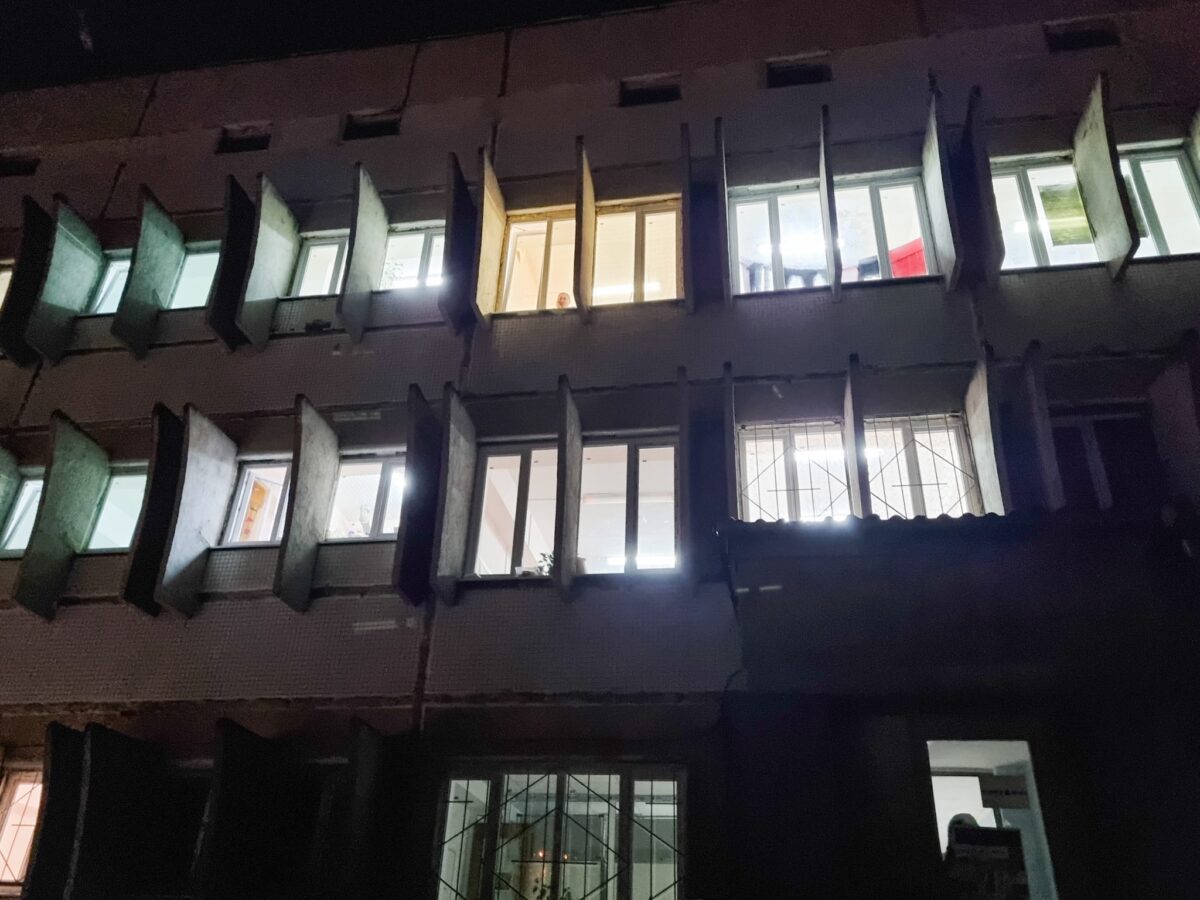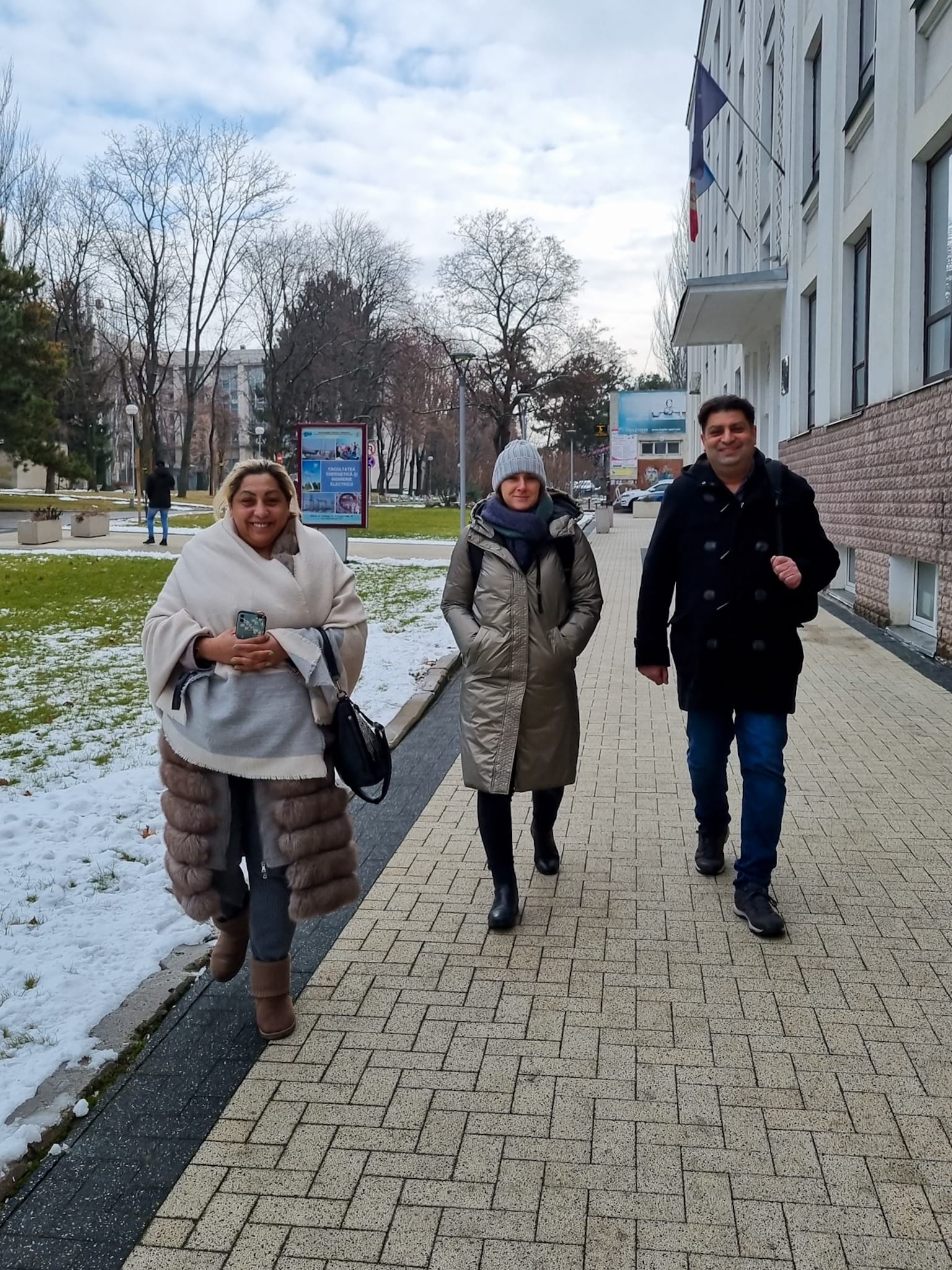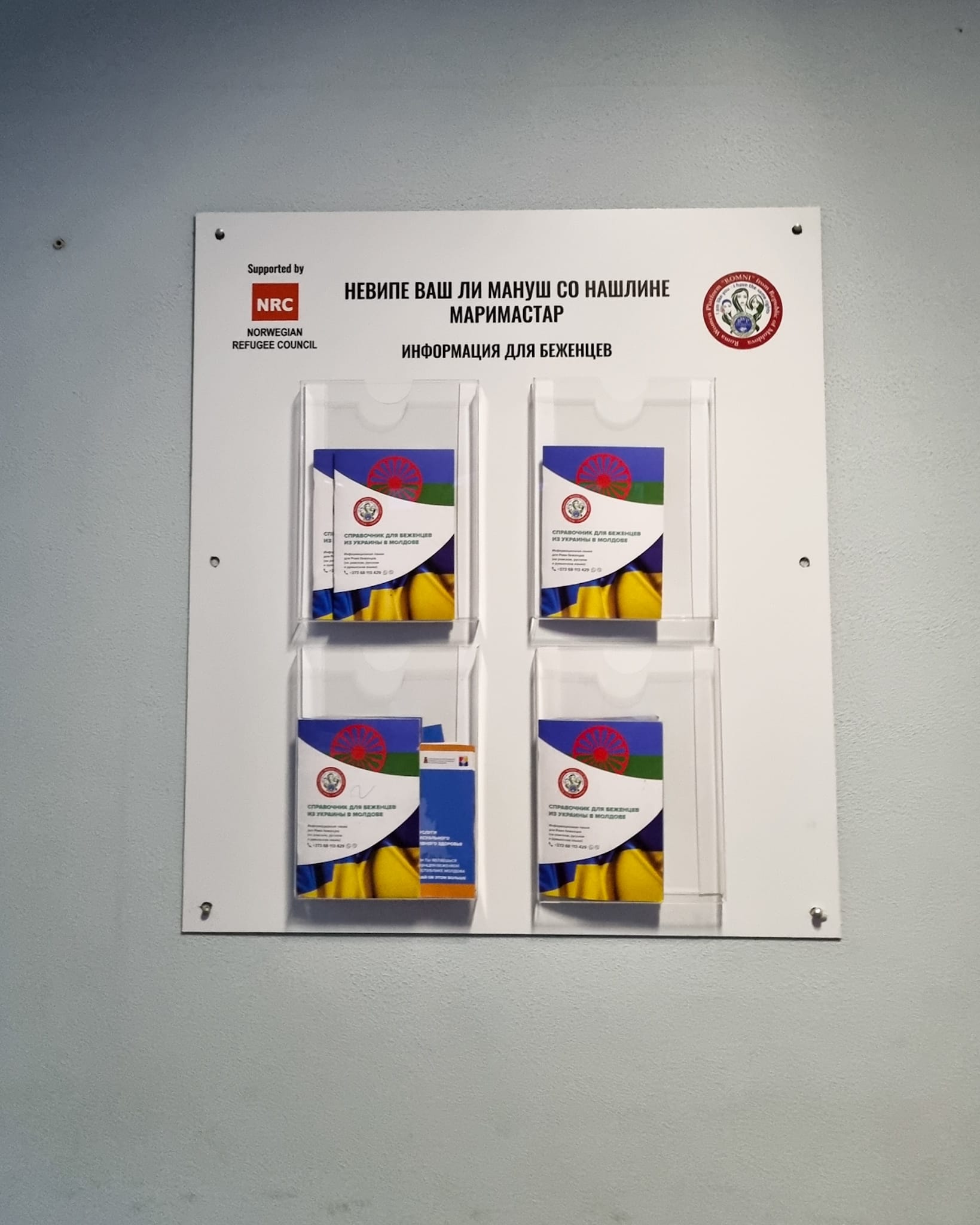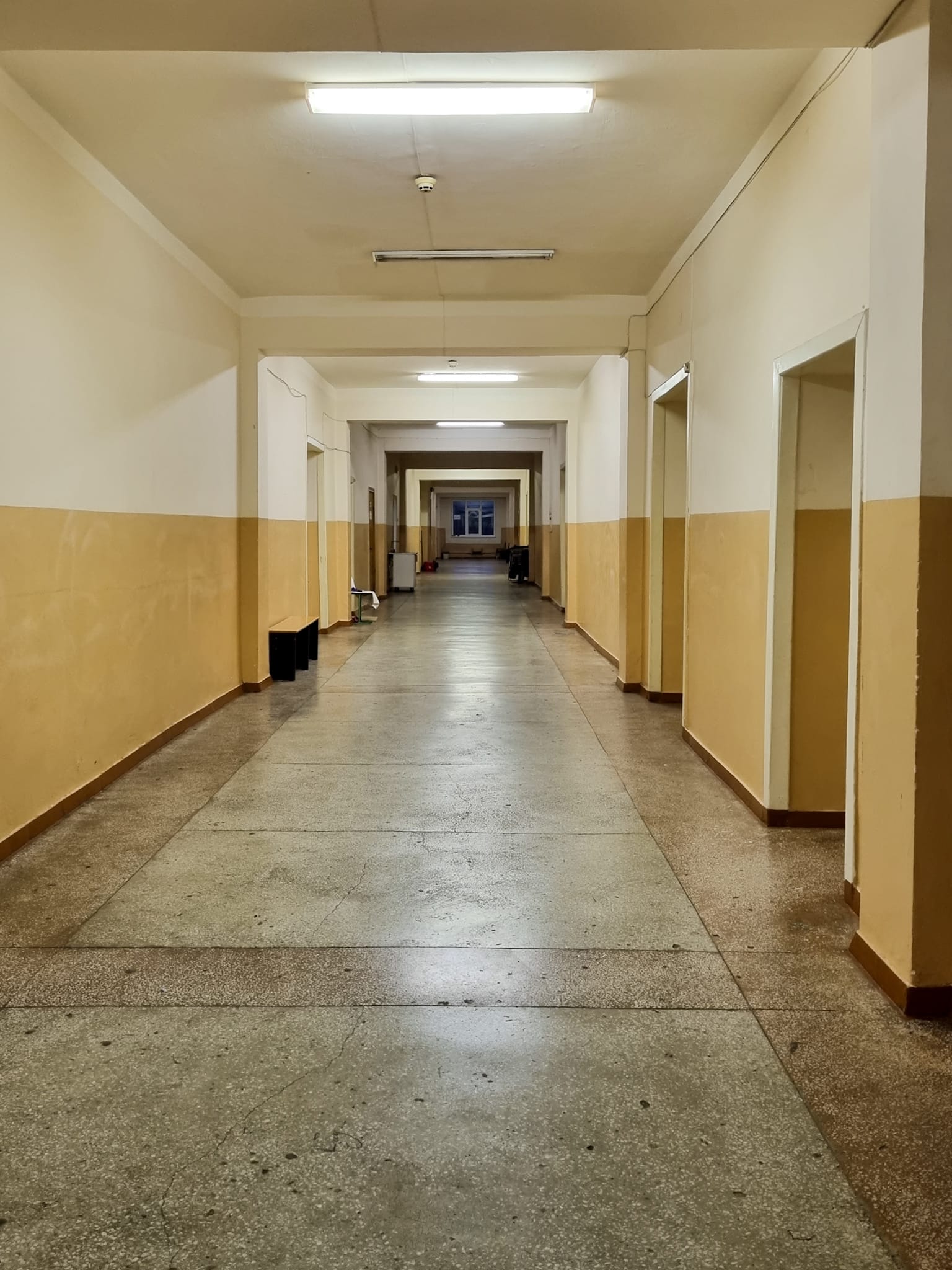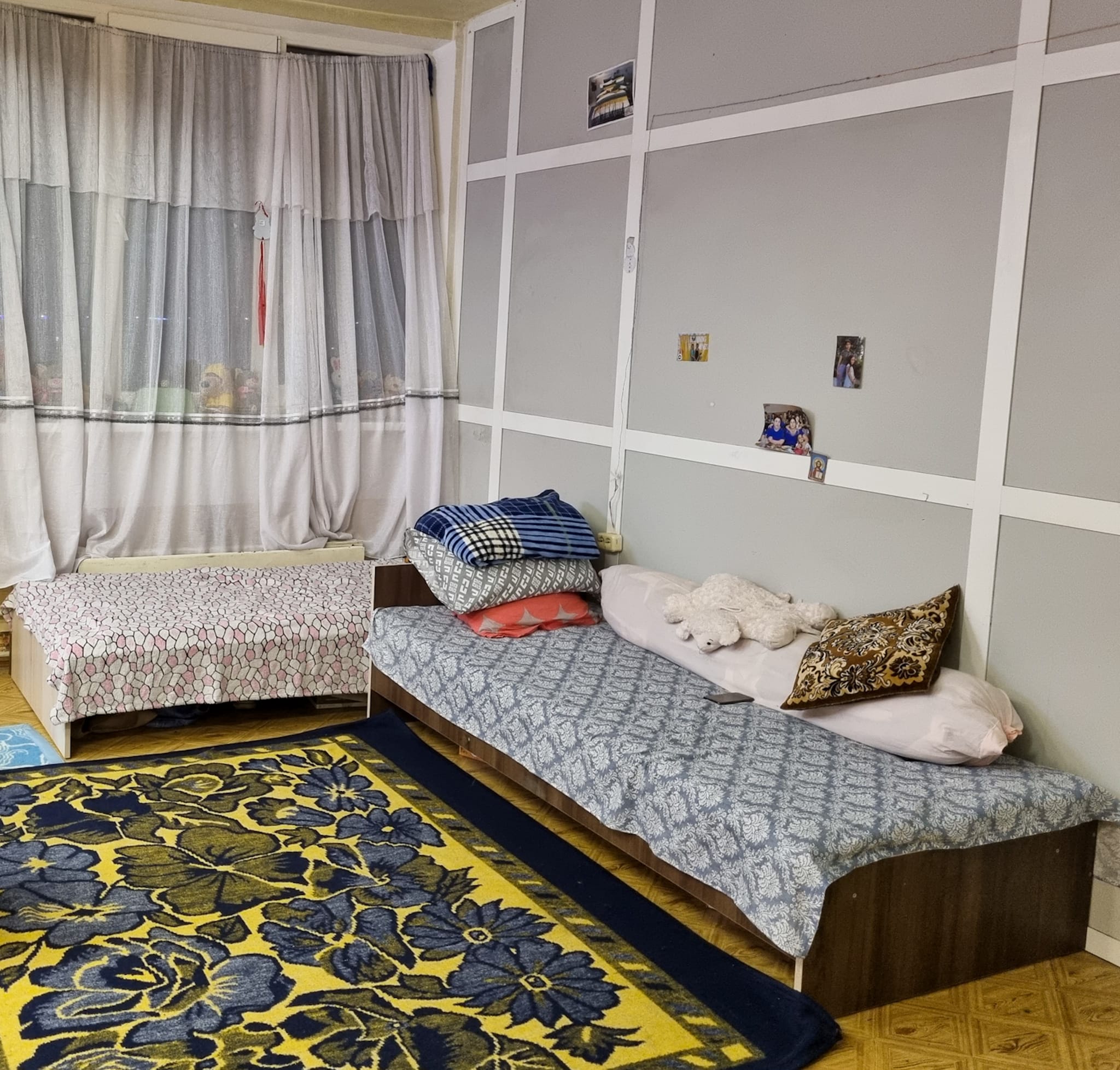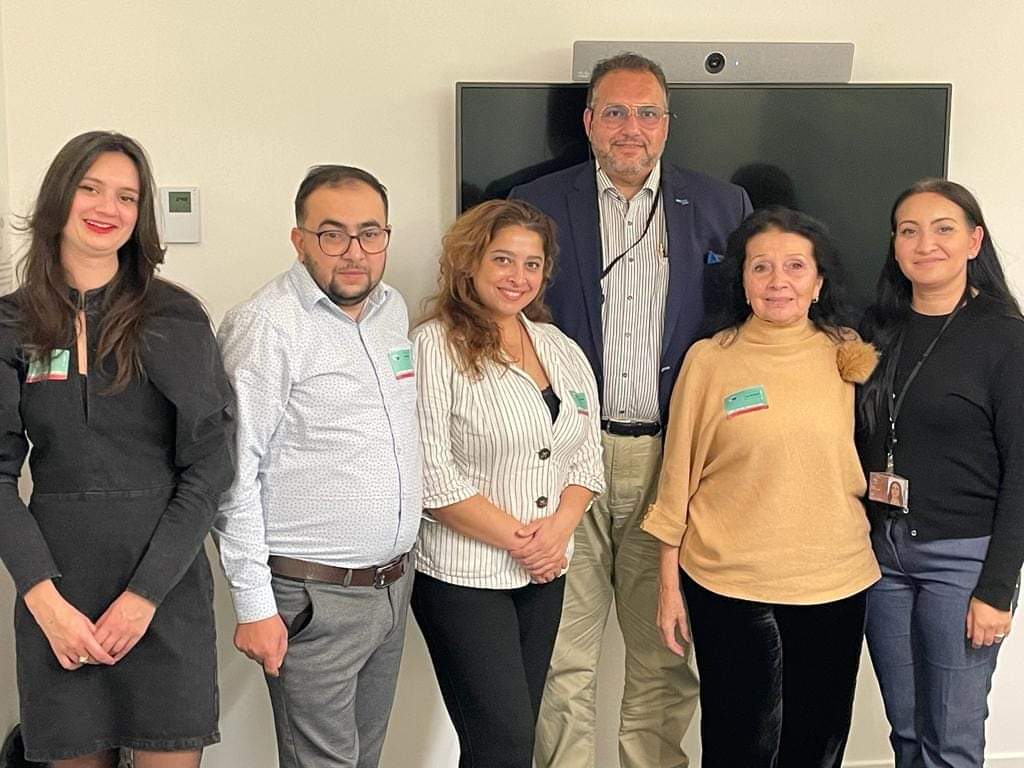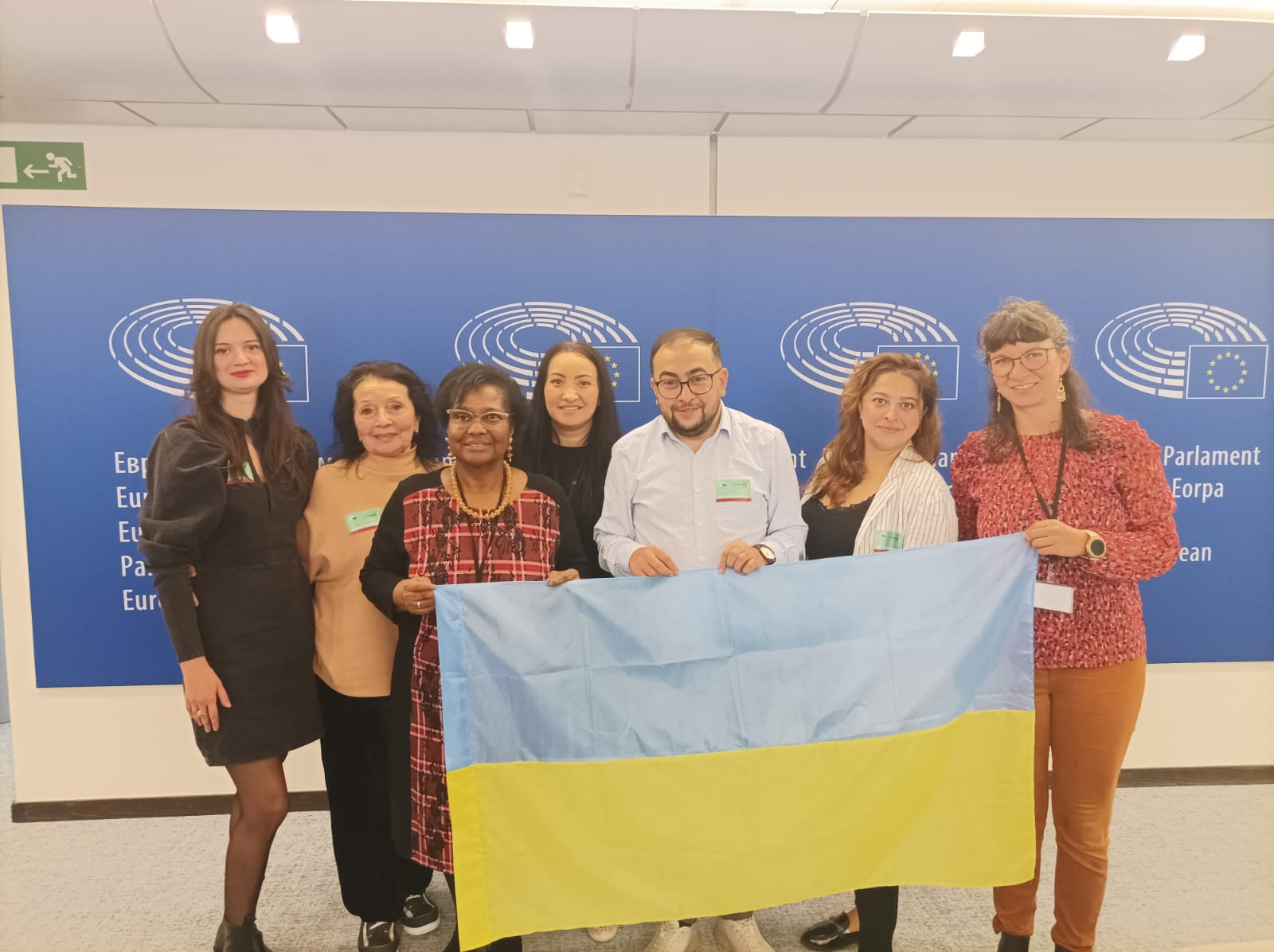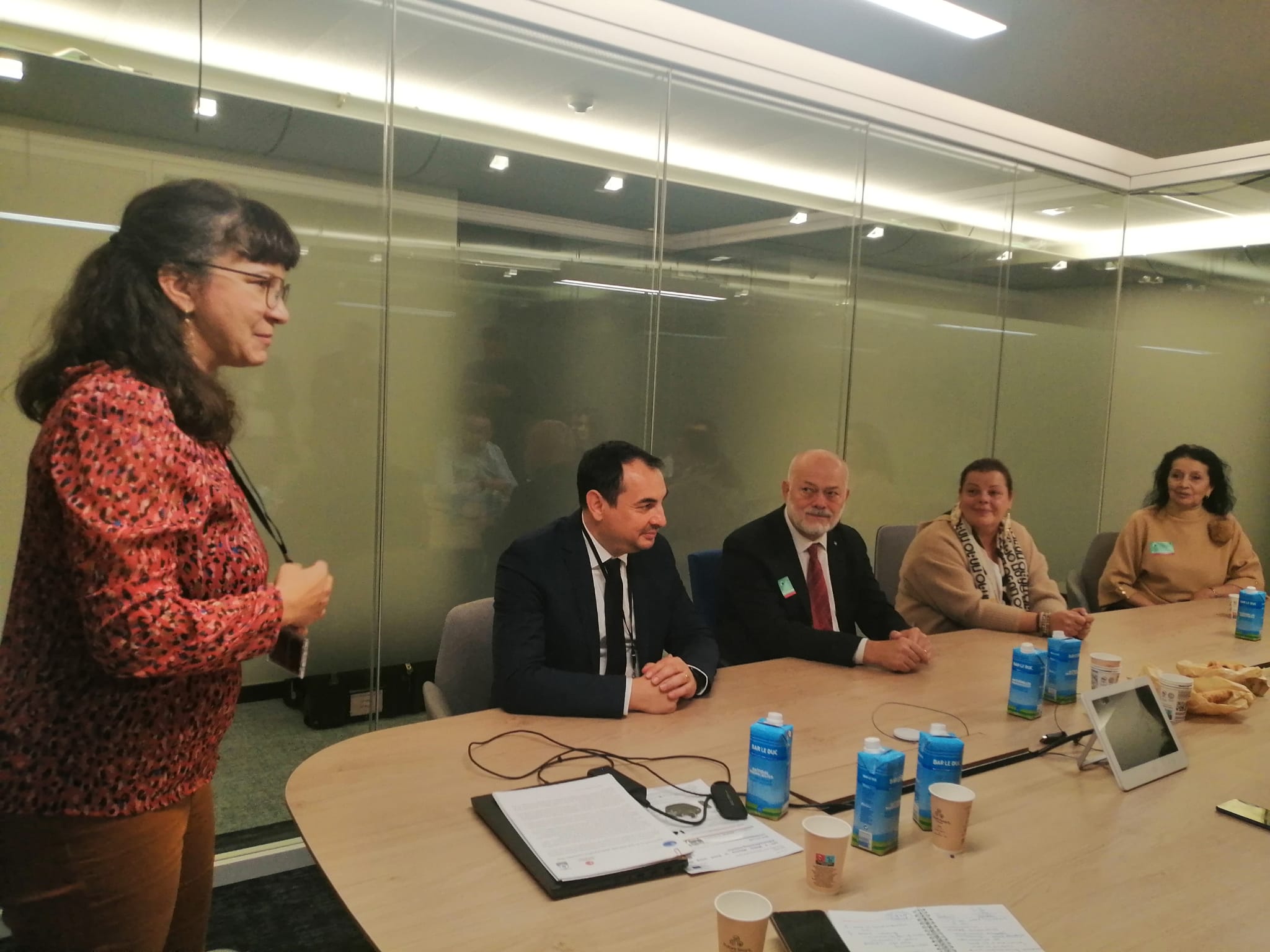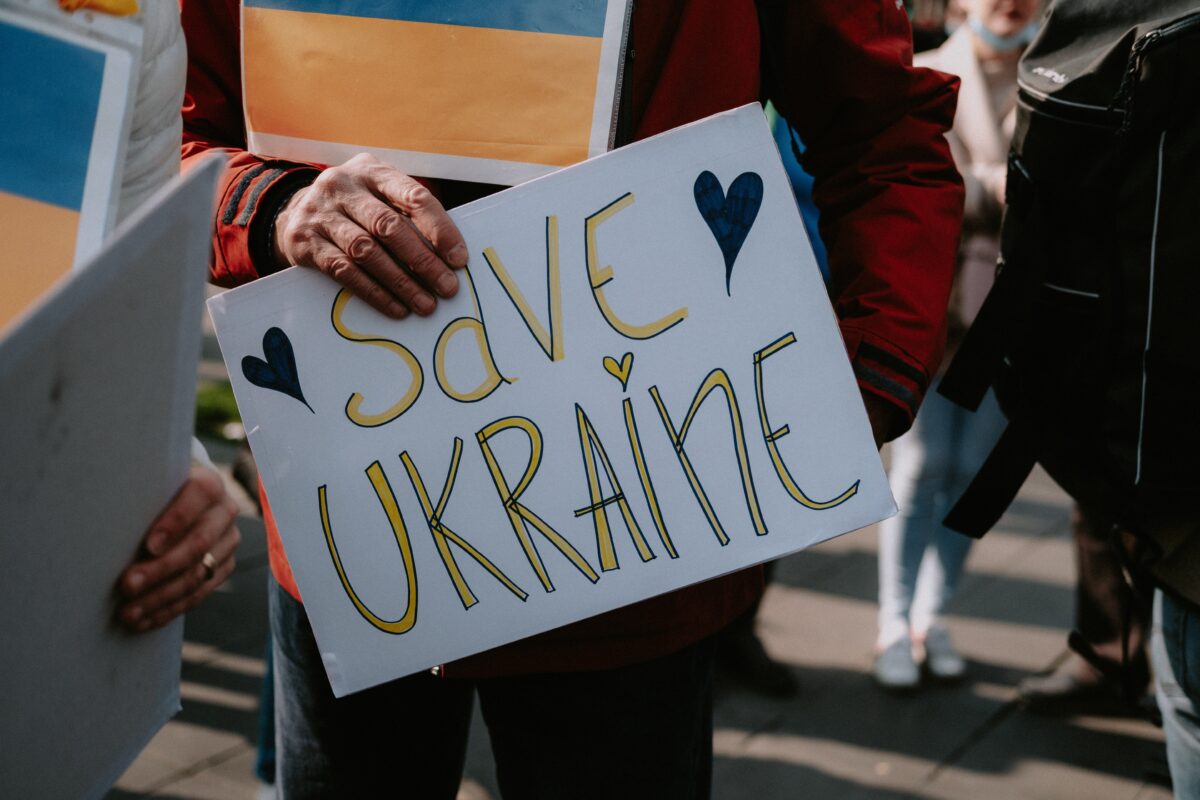Monitoring Mission on the situation of Ukrainian Roma refugees in Moldova
On 30-31 January Ukraine coordinator Dejan Markovic and Communication and Campaigns officer Ana Rozanova from the ERGO Network Secretariat together with our partners and associate members from Foundation Jaw Dikh in Poland went on a monitoring mission to Moldova. We were hosted by our local partner Roma Women Platform ROMNI and aimed to better understand the country’s situation regarding the Roma refugees from Ukraine: the national policies, the living conditions of refugees, the support they get from the state, the registration process, and other important factors.
According to unofficial sources, there are currently 5000 Roma refugees from Ukraine in Moldova and an additional 2000 in the region of Transnistria, making it one of the key countries for our monitoring and humanitarian support. A significant number of refugees in the country are not registered, limiting them in the services they receive and their families’ mobility. Because of these and other factors, we have chosen Moldova as the destination for this second monitoring mission of our one-year-long project supported by the European Programme for Integration and Migration (EPIM).
Roma Women Platform “Romni”
Our partner in Roma Women Platform “Romni” is supporting the arriving Roma refugees from Ukraine since the beginning of the war in February 2022. Despite the small size of the organisation, they have efficiently organised the work and were able to provide humanitarian aid thanks to partnerships with not only ERGO Network, but also the UN agencies, Oxfam, MADRE grants and other donors.
They have carried out the first basic monitoring of the locations of refugees (often unregistered), their demographics and the main needs they face, putting together detailed lists of humanitarian aid needs for the donors to maximise the clearly insufficient support for the number of people in need.
“Romni” has also been a part of the informal Roma civil society coalition which pushed for establishing a position in the government crisis response group (presently the Crisis Centre for Refugees under the Ministry of Interior) who would be advocating specifically for the Roma refugees. As the director of “Romni” Elena Sirbu is an established journalist, her organisation was active in communicating the issues refugees face both on national and international level and also runs several media projects, raising awareness among the arriving refugees themselves through leaflets and a Youtube channel in 5 main dialects of Romanes.
Visiting Ukrainian Roma refugees
We started our mission by visiting the Roma Refugees Center “Testimiţeanu 6” in Chișinău. This centre was established in March 2022 and is currently hosting approximately 115 people, the majority of them Roma from the Odesa region. Although the living conditions have improved in comparison to the first centre for Ukrainian refugees set up in the “Manej” athletics centre of Chișinău, it still lacks showers (currently only one is functional), and the rooms are crowded, with often 6-8 or more people in one room.
We had a chance to speak with several families living in the centre about their main problems – unfortunately, many. While all the inhabitants of the centre spoke of their gratitude to be able to stay in a safe country and be provided with meals and a roof above their heads, several issues could be improved.
The meals provided in the centre by the catering company are one-dish-fits-all: often it is not suitable for very young children or older people staying in the centre. When the meal contains pork, it also cannot be eaten by the Muslim inhabitants of the centre (mostly of Azerbaijani origin). The children of the centre have a chance to go to school, but the school is located relatively far away, only accessible by two consequent means of transport, which is lengthy and costly. The medicine provided to the inhabitants is only the most basic one, covering urgent needs, but does not include the medicine for less acute but still very pressing health problems.

We followed this by visiting several Roma families from Ukraine who stay in private accommodations. While this housing option gives families more privacy and likely more opportunities to feel better integrated into the country, it is also very expensive. As both rent and charges for heating, water, and electricity went up this winter, and at the same time the monthly subsistence payments granted by the UN agency were delayed for two months, many families from private accommodation had to leave it and return to the centres or are fearing that soon they will have to.
Meeting national stakeholders
On the second day of our visit, we met with Marin Alla from the Crisis Centre for Refugees under the Ministry of Interior of Moldova, who is the only Roma representative in the centre and is a strong ally of the refugees, trying to both understand their situation in depth and to push for solutions which would improve it.
A new form of temporary protection will be available for all Ukrainian refugees in Moldova from the beginning of March. This form would ensure more comprehensive protection and improved conditions for accessing medical and other services. This type of registration will also enable the schools in Moldova to cooperate with the schools in Ukraine and to receive the necessary data for the pupils to progress from the currently provided “auditioning” form of schooling to a full form of school education, which would be acknowledged in both Ukraine and Moldova.
However, this type of temporary protection would still not include any financial support to the refugees from the state and will additionally restrict their mobility. As we have learnt a day before, many refugees would still travel to Odesa to visit their homes and extended family, and to receive medical consultations from their doctors. The journey by regular bus takes only 3 hours.
The new temporary protection – the way it is currently formulated in the final draft form – only allows a refugee to leave Moldova for up to a total of 35 days per year. After this limit has been reached, the protection status is removed and cannot be applied for again. Therefore, this would limit the Odesa region’s refugees from visiting their homes as often as they would like.
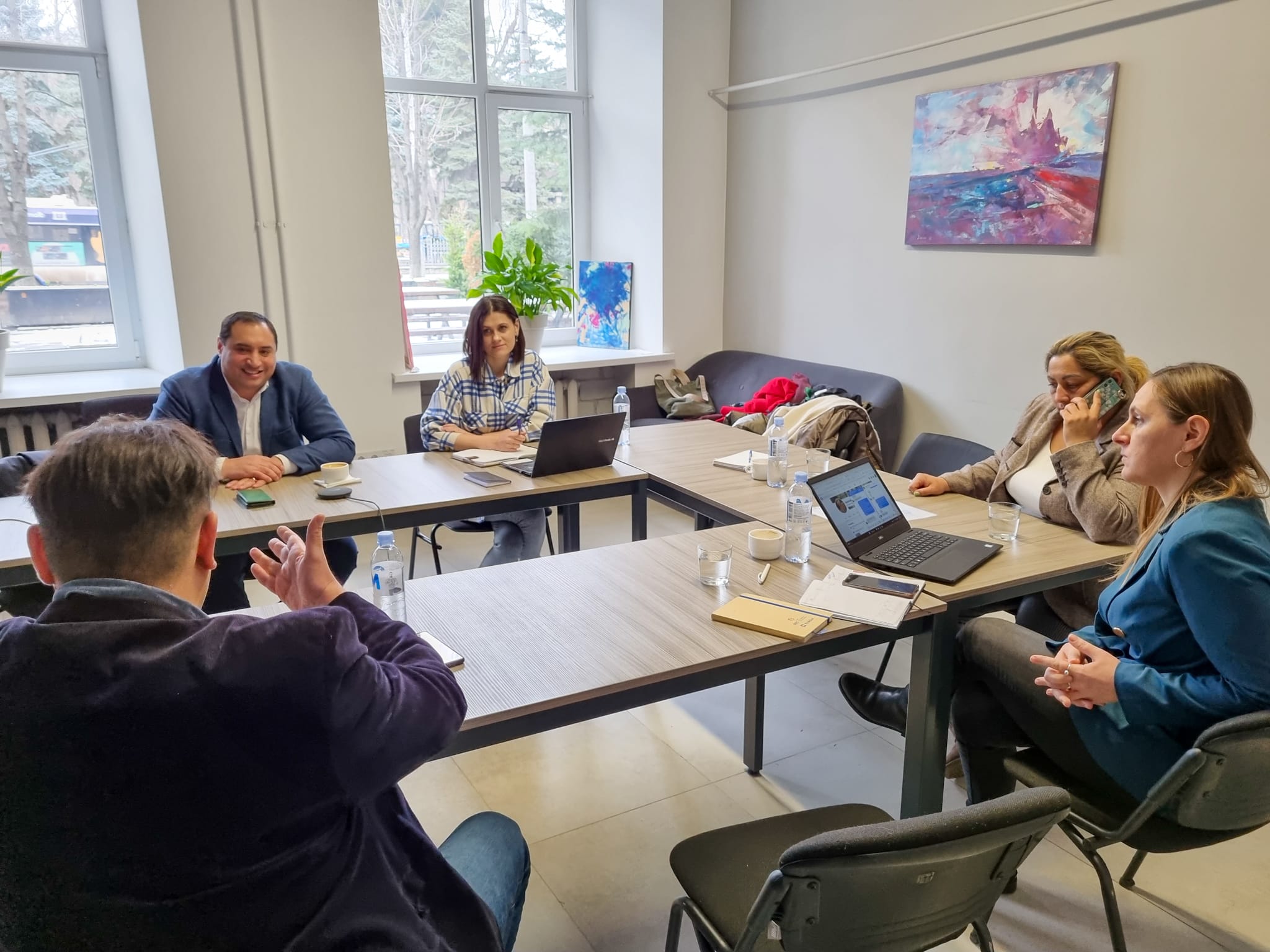
Another national partner we met was Nicolae Rădiţa, Adviser for Human Rights and Interethnic Relations to the Prime Minister. In addition to the state policies concerning Ukrainian Roma refugees, we also discussed the current National Roma Programme 2022-2025, coordinated by the Agency for Interethnic Relations, and the needs of the local Roma population of Moldova. This is a country where until recently ERGO Network was not actively involved, but due to the newly established partnership, we hope to keep a closer eye on the situation.
We believe that we have left the country with a better understanding of the situation, which we knew mostly from reports before. A crucial role in this understanding was played by the fact that we met national partners, representatives of civil society, and importantly also many refugees themselves. We discussed the issues from different angles and with different actors involved, and we hope that we can now continue our work in Moldova with better-targeted and more in-depth measures.
Conclusions and Recommendations
We have seen that there are several main issues contributing to the generally problematic situation of the Ukrainian Roma refugees in Moldova.
While the state provides the refugees with a lack of financial support the state puts the refugees in a situation where they often lack money for covering their basic needs, such as food, medicine and transport to school for the children. The situation is even more precarious for the refugees who do not stay in the centres either by choice, but more often because of the circumstances: the payments they receive are so unstable that they ensure monthly payments for their rented accommodation.
ERGO Network would encourage the state authorities and national and international donors to better coordinate the financial help for refugees, to ensure they have access to the needed services and have a decent standard of living.
The state is preparing a registration for temporary protection, but the CSOs doubt whether this policy will make the life of particularly Ukrainian Roma refugees easier or put an extra burden on them. ERGO Networks welcomes the position of Marin Alla as responsible specifically for the Roma refugees and would encourage the authorities to keep this position for the full duration of the crisis, as well as to take into account his suggestion when it comes to drafting policies concerning the refugees.
We would further encourage the authorities to ensure that the refugees – even those lacking either literacy skills or technology or both – are able to register for temporary protection. The CSOs can assist them with this task, but for this, they would need to be supported by the state.
Antigypsyism also penetrates all the areas of refugee treatment, making the daily life of the already-vulnerable Roma refugee community even more complicated, and has to be first acknowledged, before it can be tackled on structural level.
A report will be prepared, which will provide ERGO Network and the partners with the necessary data to strengthen our advocacy and cooperation with possible allies. A similar mission has already taken place in the Czech Republic and others will also take place in the coming weeks in Hungary, Poland, and Slovakia.

